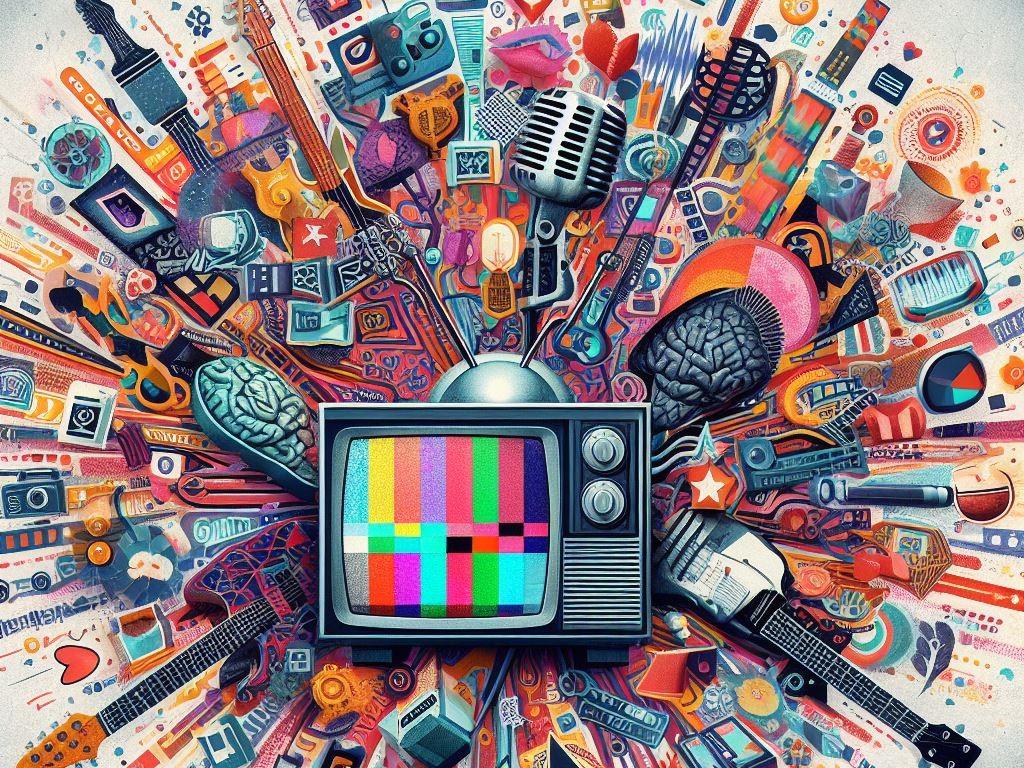By: The BitMar Team.
Image Source: Bing Image Creator.
The transformation of the streaming industry has brought about a profound shift, in the way in which we perceive the concept of "canonicity." The term: "canonicity," refers to the status – or recognition – of a work of art, literature, or any cultural creation, as being authoritative, significant, and/or representative of a particular genre, period, or tradition. The concept of canonicity can evolve, over time, and may differ among different cultural contexts, and perspectives. In this digital age – wherein the rules of traditional media have been rewritten – the canons of Film, and Television, are undergoing a remarkable evolution. This article will delve into several facets of this intriguing phenomenon, with the purpose of providing a comprehensive understanding of these changes.
The first remarkable aspect, to consider, is: how streaming platforms have upended traditional notions of canonicity, in the realms of film, and Television. Historically, canonicity was closely tied to mainstream success, and critical acclaim. However, as David Sims – at The Atlantic – points out: streaming services have created a platform – for niche, and experimental, content – that may have never found a place, in the traditional canon. The democratization of viewership has granted a new lease of life, to unconventional narratives; while challenging the established hierarchies.
Intriguingly, streaming's influence extends beyond the mainstream; impacting the discovery, and appreciation, of lesser-known works. In the words, of: Margaret H. Willison – from: NPR – streaming services have become treasure troves; for many voices, and stories. By providing a stage, for various content, they have broadened the definition of canonicity.
Moving forward, the rise of streaming raises the possibility of new forms of fan-curated, and algorithmic, canons. A study – by: Barry Keith Grant, from: the Journal of Film and Video – suggests, that: streaming algorithms have the potential to craft personalized canons, for viewers; recommending content that is tailored to their preferences. This development alters the traditional notion of a single – universal – canon, while opening the door to a multitude of individualized canons.
Nonetheless, as streaming platforms multiply, preserving a sense of cultural coherence becomes a pressing challenge. Mark Hughes, from: Forbes, discusses the fragmentation that is caused by the proliferation of streaming services. With each service offering its unique set of content, maintaining a shared cultural canon has grown increasingly intricate. This raises questions; about how society defines its collective identity, in a world wherein the canon is no longer monolithic.
Finally, the ethical implications of using streaming platforms, to promote – or marginalize – certain works of art, and/or biased political views, demand scrutiny. In an op-ed, for The Guardian (Anonymous, 2020), the argument is made, that: streaming platforms – as gatekeepers of content – have the power to elevate – or suppress – certain works; based on various factors. This prompts considerations; about who wields the authority to shape the modern canon, and what impact this may have; on artistic, political, and cultural, representation.
In conclusion, the streaming industry's influence, on canonicity, is a multifaceted – and dynamic – phenomenon. It challenges traditional canons, embraces lesser-known content, ushers in personalized canons, grapples with cultural coherence, and raises ethical concerns. These changes are not without their complexities, and controversies; making it a topic of considerable relevance, and importance, in today's evolving media landscape.
Next-generation streaming platforms – like: BitMar – may provide you the most affordable form of on-demand streaming entertainment. BitMar provides all-in-one streaming service, for life, for a one-time payment. It can connect you to millions of on-demand movies, TV shows, channels, videos, and songs (from many different sources on the Web), on the screens that you already own. In fact, BitMar provides access to more movies, and TV shows, than: Cable, Satellite, Netflix, Disney Plus, Max/HBO Max, Amazon Prime Video, Apple TV+, Peacock, and Hulu – combined – and more songs, than: Pandora, Spotify, Amazon Prime Music, and Apple Music—combined. You may learn more, at: BitMar.com/.

